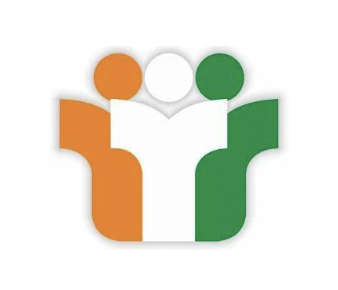Our projects:
Project “Comprehensive Strategic Communications Program to Counter Violent Extremism”
Project goal: to support government agencies in implementing communication strategies and campaigns aimed at countering terrorist narratives and terrorists’ use of the Internet, increasing media and digital literacy, creating and promoting alternative content, and strengthening the resilience of vulnerable groups to terrorist content.
The project consists of four key components:
-
National Action Plan (NAP) for Strategic Communications on Preventing Violent Extremism: Strengthening the progress of the Government of the Kyrgyz Republic (KR) in implementing the National Action Plan to counter violent extremism by developing and putting into effect a strategic communications strategy.
-
Countering Terrorists’ Use of the Internet (CTUI): Supporting the Government of the KR in understanding and applying effective methods to counter terrorists’ use of the Internet. The main vehicle for implementing the CTUI component is the International Digital Consulting Service (IDCS), which introduces new solutions to counter terrorists’ use of the Internet by engaging leading innovators from the private sector in digital consulting, dynamic communication activities, and community outreach.
-
Enhancing media and digital literacy: Educating and building the resilience of youth to extremist and terrorist narratives and methods of radicalization by fostering a culture of critical and reflective media consumption through awareness-raising and capacity-building workshops.
-
Global Media Hub (GMH): Creating a network of credible local and regional speakers (e.g., former terrorists, former recruiters, etc.) and using a public-relations approach to promote trustworthy and authentic stories that help steer vulnerable audiences away from potential violent behavior and/or terrorist radicalization.
Project “National Action Plan (NAP) for Strategic Communications on Preventing Violent Extremism”
In partnership with Hedayah, the project «National Action Plan (NAP) for Strategic Communications on Preventing Violent Extremism» was implemented to strengthen the progress of the government bodies of the Kyrgyz Republic (KR) in carrying out the National Action Plan to counter violent extremism by developing and putting into effect a strategic communications strategy.
The following materials were prepared within this project:
-
A review of the functional responsibilities of government bodies in preventing violent extremism, in particular the implementation of the Government Program’s Action Plan for the Prevention of Violent Extremism for 2017–2022;
-
A review of external, internal, and interagency protocols for interaction among government bodies in the field of preventing violent extremism;
-
A review based on the results of focus group discussions (FGDs) and interviews to develop training materials on communication strategy for government employees, taking into account their level of awareness;
-
Recommendations to improve interaction among government bodies within and between ministries/agencies, as well as with society.
Research Project “The Role of Religious Educational Institutions in Shaping the Civic Identity of Madrasah Students in the Kyrgyz Republic”
This study was conducted within the framework of the Government of the Kyrgyz Republic’s program to combat extremism and terrorism for 2017–2022 and the United Nations project “Inclusive Governance and Justice System to Prevent Violent Extremism.” With funding from the UN Peacebuilding Fund, UN Women organized trainings to build the professional capacity of the staff of the Center for the Study of the Religious Situation and provided the necessary material and technical support to conduct research using a socially inclusive and gender-sensitive approach, as well as to carry out large-scale studies.
This study was conducted by the Center for the Study of the Religious Situation to examine the role of religious educational institutions in shaping the civic identity of madrasah students in Kyrgyzstan. The results of this study are intended for use by the relevant government bodies, the Spiritual Administration of Muslims of Kyrgyzstan, and madrasah leadership.
Project “Communications, Innovation, and Partnership”
Within this project, a working group of experts was established to prepare a new edition of the Concept of the Kyrgyz Republic in the religious sphere for 2021–2026; field, online, and offline meetings and public hearings were held across all regions of the Kyrgyz Republic.
Information and Advisory Center “Religious Hotline: Trust Line 1592.”
Taking into account the tasks set out in the Concept of State Policy in the Religious Sphere for 2014–2020, the improvement of mechanisms to ensure public safety, and countering manifestations of religious extremism and radicalism, and based on the need to combine efforts to prevent extremism and terrorism, to curb the spread of radicalism and the involvement of the population in extremist activities, in December 2016, as a pilot project, the Information and Advisory Center on Religious Issues: «Trust Line 1592» began its work.
The Center was opened in Bishkek as a result of an agreement between the State Commission for Religious Affairs of the Kyrgyz Republic and the religious organization «World Assembly of Youth» dated March 22, 2016.
The main purpose of the Center’s activities was to provide information and consultation to citizens on religious issues in response to requests received via the «trust line» or during in-person meetings with the Center’s experts.
The Center employed qualified specialists in law, theology, and psychology, who provided competent advisory and psychological assistance to citizens who contacted the Center. Two operator-specialists provided information on religious issues to citizens calling the «trust line» and, if necessary, referred them to consultations with experts.
Consultations for citizens were provided free of charge.
Project “Inclusive Governance and Justice System to Prevent Violent Extremism”
Project goal:
Organizing expert groups aimed at developing mechanisms for the rehabilitation and reintegration of citizens (close relatives) who have returned from conflict zones and were involved in extremist ideology;
Developing an interactive map to chart religious sites and organizations across the republic;
Building the capacity of government bodies and local self-government to prevent violent extremism, as well as that of law-enforcement and security agencies on specialized issues of preventing violent extremism, through the development of training materials and staff training.
Project “Youth for Peaceful Development”
The project, in partnership with UNDP, is aimed at strengthening the capacity and skills of local communities—including young women and men, their parents, local authorities, and religious leaders—in identifying, understanding, and managing the risks of radicalization and violent extremism.



